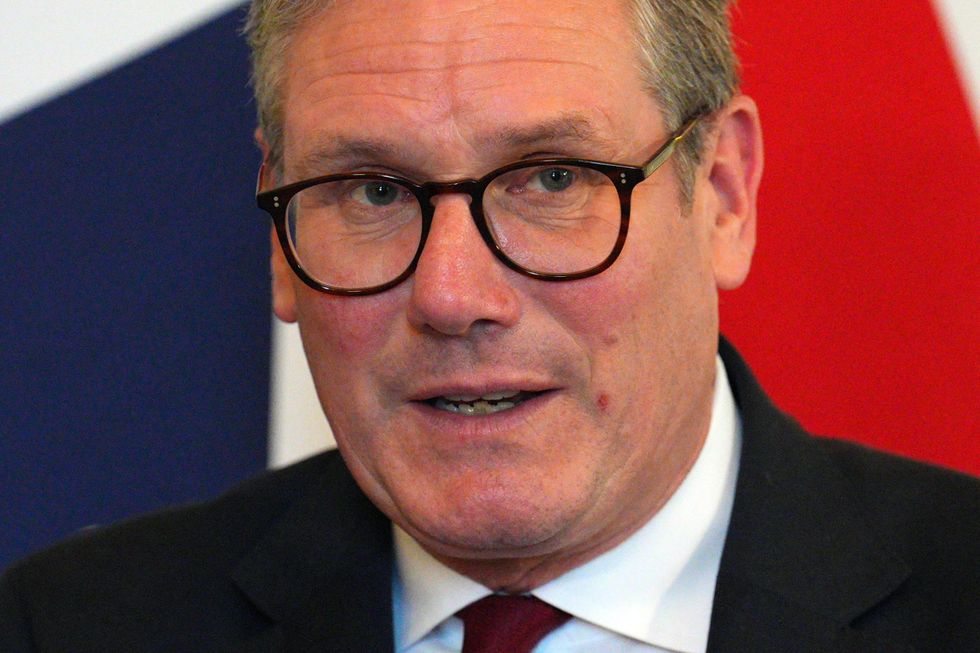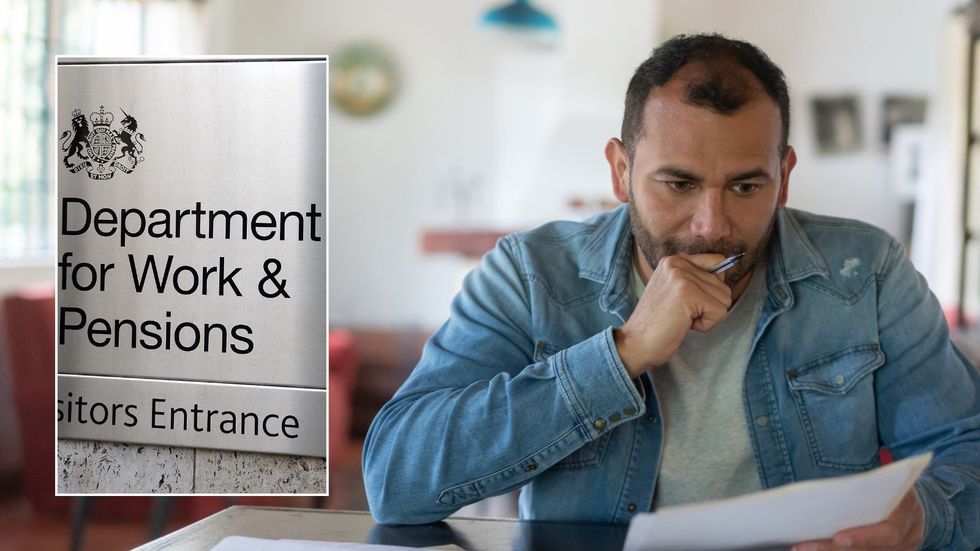Labour is facing rebellion over its current stance on the DWP policy
GETTY/PA
Keir Starmer has suspended seven of his own Labour MPs after the group voted for an amendment to scrap the DWP policy
Don't Miss
Most Read
Trending on GB News
The Labour Party has faced its first revolt from its own MPs since returning to Government over the issue of the two-child benefit cap as experts warn 670,000 young people are at risk of being plunged into poverty.
Seven Labour MPs have had the whip suspended for the next six months after voting against an amendment to scrap the controversial Department for Work and Pensions (DWP) policy.
Under the benefit cap, the majority of families claiming benefit payments are prevented for receiving Universal Credit or tax credits for more than two children.
In Parliament, MPs rejected the amendment by 363 votes to 103 which was put forward by the SNP.
Prime Minister Keir Starmer has previously claimed there is no "silver bullet" to ending child poverty despite having pledged to scrap the cap when running to be Labour leader.
Other Labour MPs, including former Resolution Foundation chief executive Torsten Bell, have indicated ending the policy is part of the Government's wider plans down the line.
Do you have a money story you’d like to share? Get in touch by emailing money@gbnews.uk.
 Starmer survives first big vote as Labour MPs whipped against two-child benefit cap PA
Starmer survives first big vote as Labour MPs whipped against two-child benefit cap PAHowever, experts have warned that waiting to end the two-child benefit cap will lead to more households being pushed below the poverty line.
Paul Johnson, the director of the independent Institute of Fiscal Studies (IFS), warned that the cap will impact around one in ten families by the end of the this Parliament.
Using the example of a single parent with three children who has their housing costs covered by benefits, they would have only £283 a week to live on.
In the two-child benefit cap did not exist, the same family would be claiming £350 weekly which could be the difference between being in poverty or not.
Writing in the Times, Johnson described keeping the DWP's cap on Universal Credit payments and tax credits as an "active decision".
He explained: "The policy is not yet, by any means, fully rolled out.
"It affects only families where the youngest child was born after April 5, 2017, so at the moment it can’t affect any family whose children are all over the age of seven.
"Taking no action will result in a big increase in the number of families and the number of children affected.
"That’s about 670,000 more children by the end of the parliament, according to estimates from my colleagues at the Institute for Fiscal Studies."
According to recent polling from YouGov, the majority of Britons want the restriction to remain in place in some form.
LATEST DEVELOPMENTS:
 Britons are losing money to the cap on benefits for families with more than two children GETTY
Britons are losing money to the cap on benefits for families with more than two children GETTY Some 60 per cent of respondents want it kept with less than three in ten wanting it abolished. Across all social groups, there is support for maintaining two-child benefit cap, including Labour voters. However, a plurality of younger voters are in favour of the DWP policy coming to an end.
A Government spokesperson told GB News: "No child should be in poverty – and we are committed to ensuring that children across the country have the best start in life.
“That’s why our new ministerial taskforce will begin the urgent work of developing an ambitious child poverty strategy, looking at all available levers across government to help tackle the crisis.”
Furthermore, the DWP confirmed it is working with child poverty organisations on child poverty to tackle the issue and introduced a number of measures, including free breakfast clubs at all primary schools, creating 3,000 additional nurseries to help parents with childcare so they can go to work, and delivering the New Deal for working people to turn the minimum wage into a real living wage.








